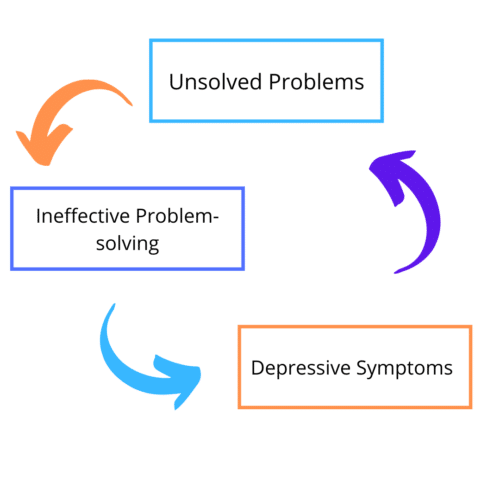Depressive disorders are the feeling of sadness and lack of desire to engage in pleasurable activities. If your mood daily affects your day to day activities negatively, then it is a depressive disorder.
You must consult a psychologist who can guide you, and provide a better understanding of your condition.
According to the National Institute of Mental Health (NIMH) report, in 2017, an estimated 11 million U.S. adults aged 18 or older had at least one major depressive episode with severe impairment. This 4.5% is the total of all U.S. adults.
Treatment with medication alone was the least common (6%). Approximately 35% of adults with major depressive episodes do not receive treatment from an experienced psychologist.
If you are suffering from a depressive order. And want to consult a psychologist and worrying about how psychologists help with depressive disorders.
Now, we are going to talk about how psychologists treat depressive disorders.

Psychological Treatments available for depressive disorders:
Psychological treatments help to change the thinking patterns and to deal with stress. These psychological treatments can help you identify and change, unexpected thoughts and behavior.
There are many types of effective psychological treatments for depressive disorders:
1. Cognitive Behaviour Therapy (CBT):
[embedyt] https://www.youtube.com/watch?v=l_Y65D7RoY4[/embedyt]
It involves working with a psychologist to identify thought and behavior patterns that are either making you more likely to feel depressed or are preventing you from getting better when you are experiencing depression.
It helps to change your thoughts by teaching you to think rationally about common difficulties and enables you to turn negative or unexpected thought responses into a more realistic, positive, and problem-solving approach.
2. Interpersonal Therapy (IPT):
IPT is a psychological treatment that is based on the idea that relationship problems can also have a significant impact on someone experiencing depression. It focuses on problems in personal relationships and the methods required to deal with them.
It helps you to identify patterns in your relationships that make you more depressed. By Identifying these patterns you can focus on improving relationships and facing grief.
3. Behaviour Therapy:

Behavior therapy is a major component of cognitive behavioural therapy (CBT) but in this therapy beliefs and attitudes are not changed. It focuses on encouraging rewarding, enjoyable, or satisfying activities and also inverses the activities that make you more depressed.
It focuses on changing the current problems because it works on the idea that unhealthy behaviour can be changed.
3. Mindfulness-based Cognitive Therapy (MBCT):
MBCT is usually distributed in groups and includes meditation which is known as ‘Mindfulness Meditation’.
It teaches you to focus on the present moment without trying to change it whether it is pleasant or unpleasant. It helps in preventing depression from returning as it encourages you to notice; feelings of sadness and negative thoughts as quickly as possible.
In Depressive disorders, MBCT therapy enables you to deal with warning signs earlier and more effectively.
4. Problem-solving Therapy(PST):
Problem-solving therapy provides you with the tools to identify and solve problems that arise from life stresses. And reduces the negative effects of psychological and physical illness.

Types of PST:
There are three common types of problem-solving therapy:
- Social PST: In this, your physician helps you to identify solutions to everyday problems that make you stressed.
- Self-Examination PST: In this, your psychologist helps you to set life goals, evaluate obstacles in your goals, and implement problem-solving strategies to achieve them.
- PST for primary care settings: PST for primary care settings is effective for patients with major depression and for patients with more large-scale defined emotional disorders.
Note: Problem-solving therapy was first developed in Great Britain in the context of primary care. Plus, It was designed as an evidence-based therapy that doctors are using in dealing with their patients.
As you know, a depressive disorder is a serious mood that affects your daily life activities like how you think, feel, or interact with people.
In this post, you have learned about how effective is a psychological treatment for depressive disorders like CBT, behavior therapy, MBCT, PST, and problem-solving therapy.
finally, If you want to consult a psychologist on depressive disorder in India, then Dr Neha Mehta is the best option.













